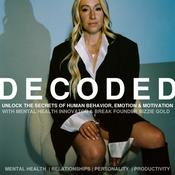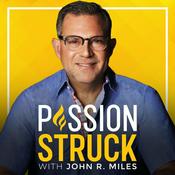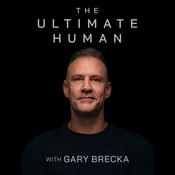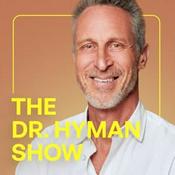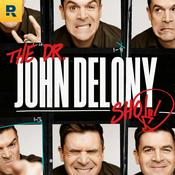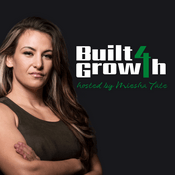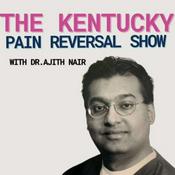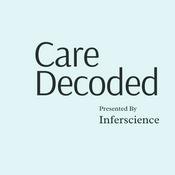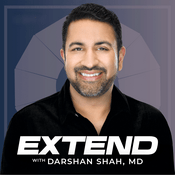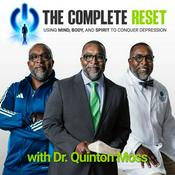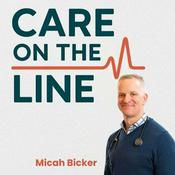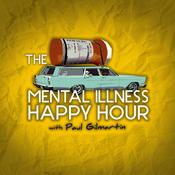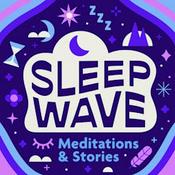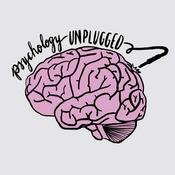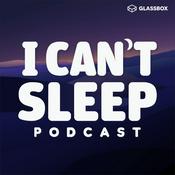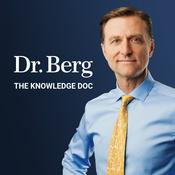35 episodes
- When we talk about perimenopause, we talk a lot about symptoms, but not nearly enough about what's happening to your heart. Since February is Heart Health Month, it's the perfect time to take a "beat" to focus on your cardiovascular health.
In this episode of OvaryActive, the Docs zoom out from hot flashes and hormones to talk about the number one killer of women: cardiovascular disease. They also explain why the menopause transition is a critical (and often ignored) window for heart health.
Preventive cardiologist Dr. Beth Abramson joins Dr. Rebecca Dunsmoor-Su and Dr. Amy Voedisch to connect the dots between perimenopause, estrogen changes, and rising cardiovascular risk.
They talk about why cholesterol and blood pressure tend to creep up after ovarian function declines and how lifestyle factors actually matter more than we'd like them to. This conversation reframes midlife as an opportunity, not a countdown.
The takeaway? You're not doomed, but you do need to pay attention. Your heart has been quietly keeping score this whole time.
What you'll hear in this episode:
[0:28] Welcome Dr. Beth Abramson
[1:20] Heart health 101
[5:21] Understanding risk factors and prevention
[7:30] Diet & exercise: practical advice
[12:34] Menopause & cardiovascular health
[16:30] Pregnancy & long-term heart health
[24:11] Lp(a) explained
[26:29] Hormones ≠ heart shield
[32:14] Risk–Benefit Math
[40:16] What the future holds
[44:07] Basic health practices are important
[44:36] A few final thoughts on heart health
Resources:
cardiometabolicprevent.ca
Follow the show @OvaryActive Instagram | YouTube
Meet the Docs:
More information about Dr. Rebecca Dunsmoor-Su:
Gennev: www.gennev.com/clinician/dr-rebecca-dunsmoor-su
LinkedIn @rebecca-dunsmoor-su
More information about Dr. Amy Voedisch:
Stanford Medical Clinic: stanfordhealthcare.org/doctors/v/amy-voedisch.html - Birth control or hormone therapy? Why does this decision feel like a personality test you didn't study for?
In this episode of OvaryActive, the Docs tackle one of the most confusing (and hotly debated) topics in perimenopause: when birth control is actually the right choice, when menopausal hormone therapy makes more sense, and why TikTok might not be the best place for medical nuance.
Dr. Rebecca Dunsmoor-Su and Dr. Amy Voedisch walk listeners through how clinicians actually think about this decision. The process includes contraceptive needs, bleeding patterns, symptom "greatest hits," and medical history that actually matters.
The Docs will guide you through the options and even cover what a combination approach might look like. Most importantly, shared decision-making, not social media panic, should guide treatment choices.
This episode reminds you that perimenopause is real, complicated, and highly individual. And the right plan is the one that treats your physiology, not someone else's algorithm.
What you'll hear in this episode:
[1:05] Birth control vs. hormone therapy
[2:49] Contraception needs during perimenopause
[5:34] Understanding menopausal hormone therapy
[7:45] Assessing symptoms
[16:59] So many choices! How do you choose?
[22:03] Breakthrough symptoms
[23:51] Combination approaches (Amy's FAV)
[29:58] You didn't miss the window!
[35:32] Alternative methods & why they may not be a good fit
[40:22] You're NOT crazy!
Follow the show @OvaryActive Instagram | YouTube
Meet the Docs:
More information about Dr. Rebecca Dunsmoor-Su:
Gennev: www.gennev.com/clinician/dr-rebecca-dunsmoor-su
LinkedIn @rebecca-dunsmoor-su
More information about Dr. Amy Voedisch:
Stanford Medical Clinic: stanfordhealthcare.org/doctors/v/amy-voedisch.html - Hot flashes, mood swings, surprise chin hairs… and now migraines? Welcome to perimenopause, where your hormones throw a rave in your brain and forget to invite you.
In this episode of OvaryActive, the Docs tackle the maddening intersection of migraine misery and perimenopause chaos, complete with aura weirdness, estrogen roller coasters, and the universal fear of bright lights and strong perfumes.
Migraines are more than "just a headache" and there is a reason they love to show up right before or during your period. You'll hear about triggers ranging from hormones to allergens to the existential dread of week three of your cycle.
This episode sheds light on the difference between migraines with and without aura, why estrogen drops can send your brain into chaos, and what treatments actually work.
You'll know your options, understand your triggers, and realize (important!) that you do not have to suffer through perimenopausal migraines alone.
What you'll hear in this episode:
[1:57] Why do migraines appear or get worse during perimenopause?
[3:40] Headaches vs. true migraines
[8:03] What the what is a migraine "aura"?
[13:33] Can you prevent migraines?
[21:25] Migraines can also mean anxiety, sleep issues, and hot flashes
[22:27] Practical treatment options
[29:46] What's new in the migraine treatment world?
[32:39] OTC remedies for when a migraine happens
[38:41] You're NOT CRAZY!
Resources:
curablehealth.com
Meet the Docs:
More information about Dr. Rebecca Dunsmoor-Su:
Gennev: www.gennev.com/clinician/dr-rebecca-dunsmoor-su
LinkedIn @rebecca-dunsmoor-su
More information about Dr. Amy Voedisch:
Stanford Medical Clinic: stanfordhealthcare.org/doctors/v/amy-voedisch.html - Hot flashes: the unofficial mascot of perimenopause and the original reason so many midlife women carry a personal fan or freezer pack, or insist on that open window in January.
In this episode of OvaryActive, Dr. Amy Voedisch and Dr. Rebecca Dunsmoor-Su finally give hot flashes their own episode. The Docs turn up the heat (literally and emotionally) as they talk through the lived chaos that is "my own personal summer".
Our Docs explain what hot flashes actually are, why they show up, and why your brain, not just your hormones, is the real drama queen in this scenario. Listeners will finally understand night sweats, "superflushers," the brain circuits that freak out for no good reason, and why some people glow for a year while others suffer for… well… a decade.
As always, the Docs are delivering solid science, introducing us to vasomotor symptoms, candy neurons (not as fun as they sound), social determinants of health, and the fact that estrogen is not the only character in this soap opera.
You'll saunter out of this episode knowing what causes hot flashes, how long they might last, how to treat them, and most importantly: that you're not losing your mind. You're just in perimenopause.
What you'll hear in this episode:
[2:04] What are hot flashes…actually?
[3:24] Hot flashes vs. night sweats
[5:54] The FAQ: How common? When do they start? When will they LEAVE?
[12:05] Let's get nerdy: the science behind hot flashes
[17:38 The lasting impact
[20:34] Hot flashes and cardiovascular risk are related
[22:15 The good stuff: treatment options
[36:30] Let us validate you!
Follow the show @OvaryActive Instagram | YouTube
Meet the Docs:
More information about Dr. Rebecca Dunsmoor-Su:
Gennev: www.gennev.com/clinician/dr-rebecca-dunsmoor-su
LinkedIn @rebecca-dunsmoor-su
More information about Dr. Amy Voedisch:
Stanford Medical Clinic: stanfordhealthcare.org/doctors/v/amy-voedisch.html Ep 30 | Topical Viagra & Hot Flash Chaos: The Menopause Conference Recap You Didn't Ask For
12/11/2025 | 39 mins.Perimenopause: the magical season where sleep disappears, hormones riot, and suddenly everyone thinks you're "doing great" when actually you're googling whether rage counts as cardio.
In this episode of OvaryActive, Dr. Rebecca Dunsmoor-Su and Dr. Amy Voedisch return with their second annual Menopause Society Conference recap. If you're wondering whether testosterone drops off a cliff in midlife or whether scream cream is a placebo disguised as foreplay… good news! They've got updates.
This episode walks through the latest research from menopause experts covering the big three: sexual health, longevity, and cardiovascular disease. You'll also hear about the rising fame of the podcast (including elevator selfies), the promise (and limits) of topical Viagra, and why measuring testosterone might be as useful as measuring vibes.
Listeners will get practical takeaways on hormone therapy timing, bone screening, nutrition,
Remember: you're not dramatic. You're not broken. You're just in perimenopause… and it's really happening.
What you'll hear in this episode:
[0:36] Menopause society conference highlights
[2:21] Connecting with our wonderful listeners
[4:27] Testosterone research findings
[9:20] Topical viagra for women
[13:12] Perimenopause focus
[22:04] Bone health and perimenopause
[30:00] Cardiovascular disease and sleep
[38:11] A few final thoughts and future conferences
Thank you to every clinician who stopped to chat:
Rebecca Levy-Gantt, DO MSCP Premierwomenshealthconsulting.com
Yashika Dooley, MD MSCP Gennev.com
Emily Drath Stone, MD MSCP Virginia Physicians for Women
Lisa Savage, MD MSCP Gennev.com
Becky Lynn, MD Evora Women's Health
May your sleep be long, your bones dense, and your badge scanners always work on the first try.
Follow the show @OvaryActive Instagram | YouTube
More Health & Wellness podcasts
Trending Health & Wellness podcasts
About OvaryActive
Two gynecologists walk into a recording studio.
Sounds like the start of a joke, and frankly, perimenopause can feel like the start of a joke too. Only this joke is on you. And it's not that funny. But back to those two OB/GYNS….
Dr Rebecca Dunsmoor-Su and Dr. Amy Voedisch have been caring for the reproductive health of those born with uteruses for a while now. And the doctors are frankly pretty tired of how those body bits — and the people they belong to — get ignored by medical science when they are no longer ideal baby-makers.
Half of a woman's life comes after her Build a Baby shop shuts down; however, the medical community does little to educate her about or treat her for issues related to her peri- and post-menopausal body.
In this smart, funny, incredibly informed, wonderfully irreverent podcast, Doctors Rebecca and Amy give us the down low on our… down lows. What is perimenopause? What can I expect? How can I feel better? And for crying out loud, WHEN IS IT OVER?
Tune in on the 2nd and 4th Thursday of each month to get the real information without the hype, the sales, the myths, superstitions, and nonsense. Are your ovaries starting to overreact? Grab a partner, a buddy, a random woman who looks on the verge of tears, and listen up. You're not in this alone.
And as the docs say, "You're not crazy. This is actually happening."
Podcast websiteListen to OvaryActive, On Purpose with Jay Shetty and many other podcasts from around the world with the radio.net app
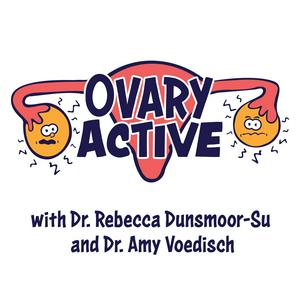
Get the free radio.net app
- Stations and podcasts to bookmark
- Stream via Wi-Fi or Bluetooth
- Supports Carplay & Android Auto
- Many other app features
Get the free radio.net app
- Stations and podcasts to bookmark
- Stream via Wi-Fi or Bluetooth
- Supports Carplay & Android Auto
- Many other app features


OvaryActive
Scan code,
download the app,
start listening.
download the app,
start listening.





